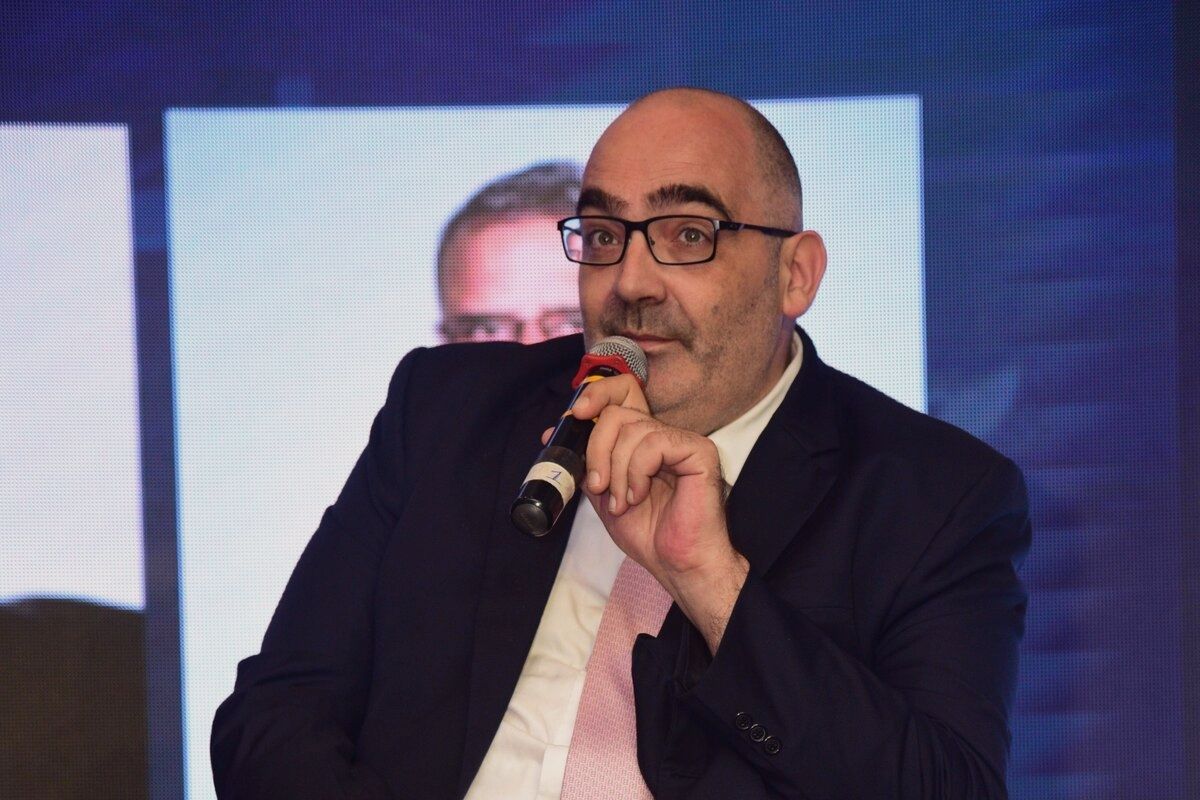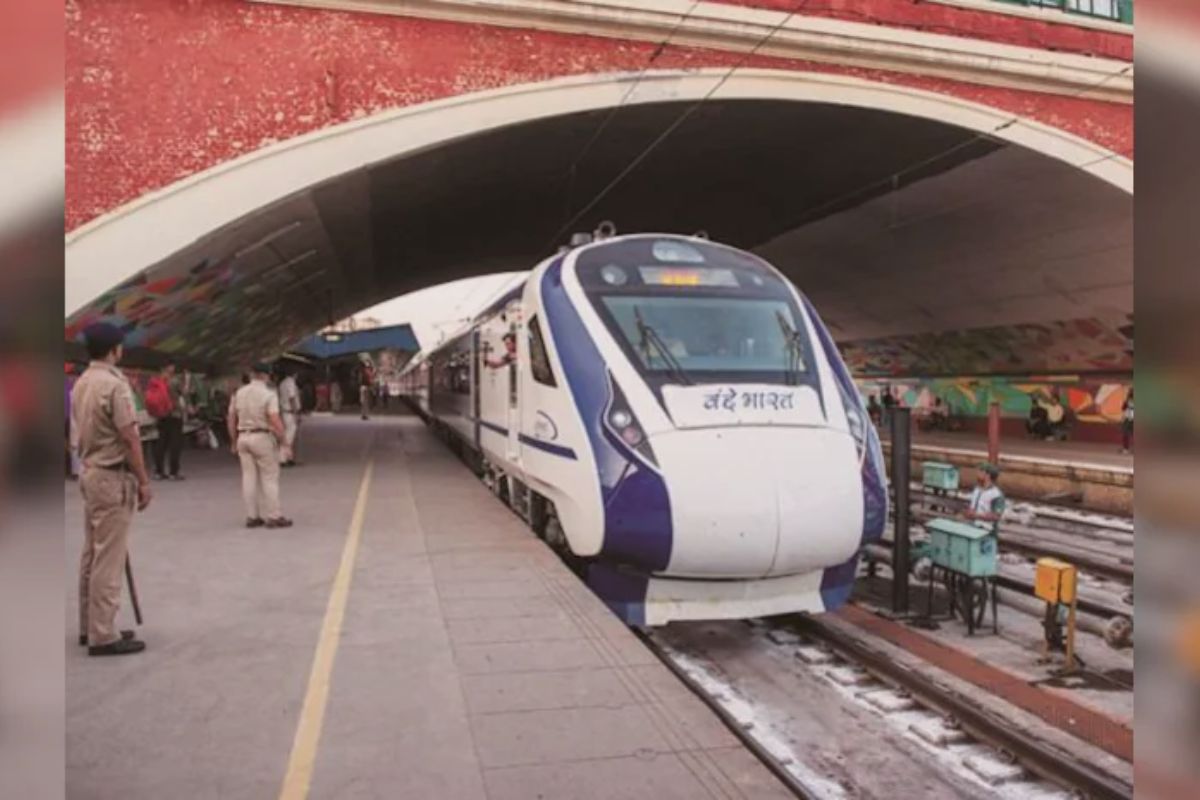The Railways of India currently abandoned its Rs 30,000 crore tender for producing and preserving 100 aluminum-bodied Vande Bharat trains, Olivier Loison, Director of Management, Alstom India Inc., disclosed to Moneycontrol.
“The Railways of India has abandoned tender. Even so, through our extensive local expertise and investments in manufacturing and human resources over time, our position is excellent and dedicated to assisting the understanding of this idea later on, if the chance comes up,” Loison stated.
Conflicted About The Amount Being Bid
Based on railway administrators, the tendering panel discovered the French multinational company’s bid price of Rs 150.9 crore per train set at an excessive level and pleaded with it to cap its value at Rs 140 crore.
But Alstom India was interested in sealing the offer of approximately Rs 145 crore per locomotive set. The French company had chosen the lowest bidder for the Rs 30,000 crore tender, revealed on May 30, 2023. The company had placed an order of Rs 150.9 crore for each set of trains, and he was seeking to produce a single one of the 100 Vande Bharat rakes; the paperwork that Moneycontrol saw was disclosed.
“At the end of a project, the agreement helps Indian Railways obtain additional time for the finest price possible. The winning bidders will also be more prepared to set up enough manufacturing facilities,” a government source stated.
The Ministry of Railways did not respond to any of the emails sent till the time of publishing.
Was The Price Quoted By Alstom Good?
At the beginning of July 2023, Alstom’s president and CEO, Henri Poupart-Lafarge, stated that the business would use fresh aluminum for the project. In a conversation with CNBC TV-18 in July., Poupart-Lafarge maintained that the company’s price was reasonable regarding the venture.
Before that, the agreement to produce Vande Bharat sleeper 200 sets of trains, all of them constructed from stainless steel, was provided at Rs 120 crore for each rake, according to a government source.

The Need For Competition Was Essential
A different official argued that competition was essential for obtaining the most affordable price. The representative stated the following tendering process would notify numerous participants, in comparison to just two in the most recent activity, to guarantee the production of the train sets on time.
The initial representative clarified the criteria for eligibility to be considered for the tender, and specified businesses must conduct research and development (R&D) facilities to make sure they can create a working model and can also put together a minimum of five years of training sets.
In General, 100 Train Sets Will Be Sent Out Within Seven Years
In the group of companies, comprising Swiss Railway equipment producer Stadler Rail and Medha, who is based in Hyderabad, and Servo Motors, only one other bidder was present other than Alstom India, and he had submitted an offer of Rs 170 crore per set of trains.
Following the conditions of the terms of the agreement, the bidder who wins will be given Rs. 13,000 crores when the train is delivered, as well as the remaining Rs. 17,000 crores to be compensated for maintenance for 35 years.
Also Read This Article:
- Independence Day 2024: Celebrating a New Era of Freedom
- How Rachael Lillis Passed Away? A Voice Silenced by Breast Cancer!
There Are Not Many Bidders
Officials were anticipating a minimum of five proposals to submit a tender, which include significant German Siemens working together with Bharat Earth Movers Limited, Transmashholding of Russia, and Rail Vikas Nigam Limited.
These businesses instead chose to exit the bidding process due to their failure to comply with technical standards.
Bids for such trains were summoned in July 2022, and they were going to open on February 15th, 2023. Afterward, the conclusion was expanded until February 23rd, 2023, after an indifferent reply.
Why Stainless Steel Instead Of Aluminum?
The train sets made of aluminum are less bulky and more energy-efficient than those made of stainless steel.
The Indian Railways plans to implement the initial sleeper version of the Vande Bharat trains within the first quarter of 2025.
At this point, contracts were given out to produce 102 and 200 sleeper cars with chair train sets from Vande Bharat, respectively.

Technological Developments Underlie Vande Bharat
The Vande Bharat has been called a train with semi-high speeds made up of sixteen self-propelled coaches, which fixes the problem of the requirement of a separate locomotive.
This framework called distributed traction power, has grown in popularity for passenger operations all over the globe.
Distributed electricity allows for quicker speeding up and slowing down in comparison to trains powered by locos, which take more time to reach top speed or slowly decrease the pace.
These trains have feature enhancements like an improved area, a system for fighting bacteria in the cooling system, as well as the capacity to speed up to 160 kilometers per hour in just 140 seconds.
Join the Digi Hind Community – Follow Us on Social Media for Real-Time Updates!
Stay connected and informed by following us on social media. Our channels provide real-time updates on the latest news, trends, and insights in the digital world. Join our growing community on platforms like Instagram, YouTube, and Facebook to engage with us.

